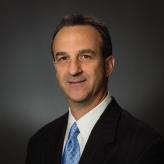US Supreme Court sets oral argument date for highly important religious freedom case
WASHINGTON – The U.S. Supreme Court announced Friday that it will hear oral arguments on April 19 in arguably the most important religious freedom case this term, Trinity Lutheran Church of Columbia v. Pauley. Alliance Defending Freedom Senior Counsel David Cortman is scheduled to argue in support of ensuring that children aren’t denied the benefit of a playground safety program simply because a church owns the playground.
ADF attorneys represent a Missouri church that runs a preschool, which the state excluded from a program that provides reimbursement grants to purchase rubberized surface material (made of recycled tires) for children’s playgrounds. Although the state highly ranked the center as qualified for the program, it denied the center’s application solely because a church runs the preschool.
“A government isn’t being neutral toward religion when it treats religious organizations worse than everyone else,” said ADF Senior Counsel David Cortman. “The state admits that the church’s preschool fully qualified for the playground safety program, and that the only reason that the preschool’s children can’t benefit from the program is that the church is religious, despite the fact that about 90 percent of those preschoolers don’t even attend the church. To say that the children who play on this playground are somehow less worthy of protection than children who play on other playgrounds simply makes no sense.”
In 2015, Cortman argued before the high court in Reed v. Town of Gilbert, a free speech case in which the justices ruled 9-0 in favor of a pastor and church that ADF represented. The Trinity Lutheran case addresses the question of whether states can exhibit hostility to religion by prohibiting churches and church-run organizations from participating in otherwise neutral government programs solely because the groups have a religious identity.
Trinity Lutheran Church Learning Center in Columbia sought to participate in the 2012 Playground Scrap Tire Surface Material Grant Program. The center wished to remove and replace a large portion of the pea gravel surfacing on its playgrounds with a safer, recycled, pour-in-place rubberized product. The Missouri Department of Natural Resources disqualified the center solely because Trinity Lutheran Church operates it. Last year, the U.S. Court of Appeals for the 8th Circuit narrowly upheld a district court’s decision that ruled in favor of the state.
“This is a critical case because, under the state’s logic, the government could deny churches access to fire services or water treatment, for example. That’s obviously not what the state or federal constitution was designed to prevent,” noted ADF Senior Counsel Erik Stanley, who has litigated the case since its inception. “The state admits that it blatantly excludes religious organizations from a safety program that has nothing to do with religion. That’s precisely the kind of hostility to religion that the U.S. Constitution prohibits.”
As the most recent brief that ADF filed with the Supreme Court states, “One can hardly imagine a clearer case of discrimination than denying children a safe playground surface solely because they attend a religious preschool. Our Constitution prohibits reducing any group of citizens to second class status and excluding them from public life simply because they are religious.”
Mike Whitehead and Jonathan Whitehead, two of nearly 3,200 private attorneys allied with ADF, are also representing Trinity Lutheran Church in the case.
Alliance Defending Freedom is an alliance-building, non-profit legal organization that advocates for the right of people to freely live out their faith.
# # # | Ref. 36395
Related Profiles

